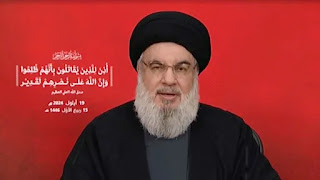Sunday, September 8, 2024
Political Turmoil and Economic Struggles Mark Bangladesh's Current Crisis
Political Turmoil and Economic Struggles Mark Bangladesh's Current Crisis
Bangladesh is currently facing a period of intense political unrest and economic instability, as the nation heads towards its national elections in early 2024. The country's political landscape is dominated by tensions between the ruling Awami League (AL) and the main opposition party, the Bangladesh Nationalist Party (BNP). As the government cracks down on opposition leaders and activists, thousands of BNP members have been arrested, including prominent figures like the party's secretary-general, Mirza Fakhrul Islam Alamgir.
The opposition, which has long demanded elections under a neutral caretaker government, has ramped up protests and public demonstrations. These movements have reignited street-level violence, including widespread strikes, or "hartals," and blockades that are putting further pressure on an already fragile economy. Political observers note that this cycle of unrest is deeply connected to the upcoming January elections, which the BNP has threatened to boycott if their demands for a neutral election process are not met.
The broader economic situation has also fueled discontent. High inflation, rising commodity prices, and a steep decline in foreign exchange reserves have led to economic hardship for much of the population. The government’s large infrastructure projects, while promising future development, have also placed significant strain on national finances, increasing debt burdens(
The Daily Star
)(
CNA
).
As Bangladesh faces these political and economic challenges, international observers, including the U.S. government, have expressed concerns about the state of democracy in the country. The U.S. has implemented a visa policy aimed at promoting free and fair elections, signaling heightened scrutiny from global actors. This intervention comes amid worries that Bangladesh is sliding towards autocracy under the long-running rule of Prime Minister Sheikh Hasina.
The combination of political crackdowns, economic challenges, and international pressure has placed Bangladesh at a crossroads. The coming months will be crucial in determining whether the nation can navigate these crises without further destabilization(
Atlantic Council
).
Subscribe to:
Post Comments (Atom)
Israel killed Hezbollah leader Hassan Nasrallah in Beirut strike, group confirms
Hezbollah leader Sayyed Hassan Nasrallah gives a televised address on September 19, 2024, in this screenshot taken from a video. Al-Manar T...

-
It's the southernmost post of exit from Gaza and borders Egypt's Sinai peninsula. There are only two other border crossings from an...
-
Freelancing is a form of self-employment where individuals offer their skills and services to clients or businesses on a project-by-proje...
-
E-commerce, short for electronic commerce, refers to the buying and selling of goods and services over the internet. It has become a si...


No comments:
Post a Comment